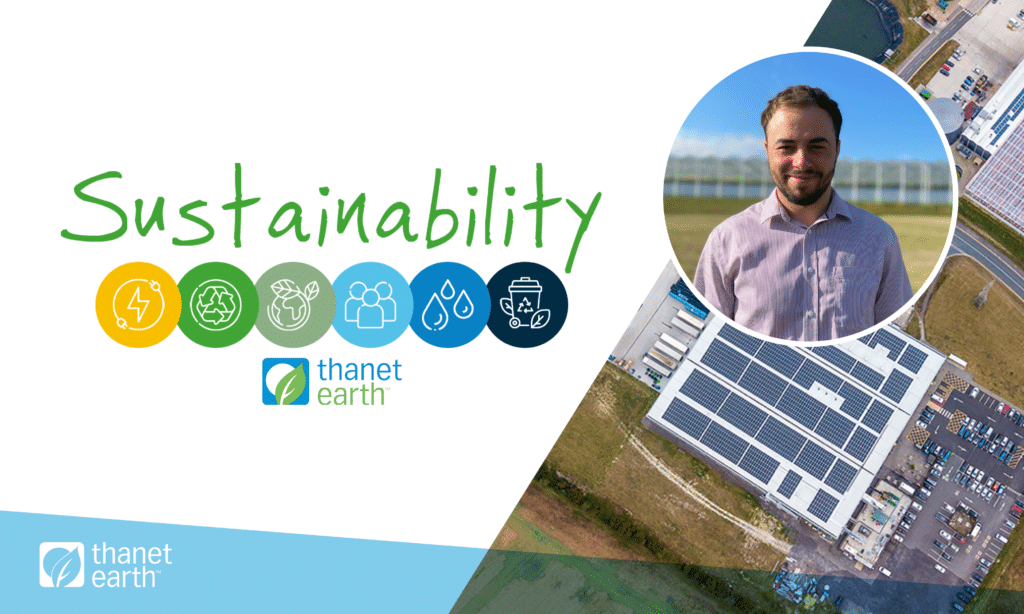Thanet Earth SBTI in the Fresh Produce Journal
Adam Harrison, our Environmental and Sustainability Technologist spoke with Michael Barker from the Fresh Produce Journal about Thanet Earth’s SBTI targets. You can read the full article here.
What made you decide to aim towards achieving SBTi targets?
At Thanet Earth we recognise the critical role which our industry plays in shaping a sustainable future, so felt it necessary to introduce the structure of SBTI to our development plan. By aiming toward SBTI it has allowed us to demonstrate sustainable agriculture. By committing to SBTI we have been able to align our operations with a globally recognised climate science. Regulatory landscape is constantly evolving and there is increasing pressure being put on businesses to reduce emissions and adopt sustainable practices. By aligning with the forward thinking SBTI approach it ensures that as a business we stay ahead of the curve. The business has a desire to make a meaningful difference, through setting and achieving SBTI targets it is a tangible way for us to make a positive impact and fulfil our business responsibility towards the environment.
When did you decide to do it, and can you explain a bit more about what you are specifically working towards?
We set our Target in 2021 and have used this as our base year for emissions. Our specific target is to reduce our scope 1 and scope 2 emissions by 42%, by 2030.
How big a culture change has that required within the business?
The business has always understood its environmental impact and was designed in an environmentally conscious way to minimise impact from the offset. However, as time has progressed, and more stringent requirements have been introduced both from government legislation and customers, there has had to be a level of focus and adaptability to assist in driving emissions reduction that was not originally in place.
What changes or investments have you made to work towards that?
The business has invested in several technologies to successfully reduce its impact. A few notable mentions include the introduction of solar panels on the packhouse roof in 2023. All on site vehicles run off HVO fuel which has a significantly lower emission impact in comparison to diesel. When looking to the glasshouses, there has been significant investment in LED lights to aid the growing process, moving away from sodium.
What are the biggest challenges in picking the SBTi route? What have you learnt on your journey so far, positive or negative?
One of the significant challenges we have faced in pursuing SBTi targets is the requirement for sustained focus and substantial investment. Achieving meaningful reductions in emissions is not an overnight task; it requires a long-term commitment and a comprehensive approach that touches every aspect of our operations. Integrating sustainability into the core of our business involves making numerous operational changes. These changes must become ingrained in our daily routines and processes, requiring us to rethink how we manage resources. This transformation demands a shift in practices but also alignment with our long-term strategic vision.
The financial investment needed to implement sustainable practices can be considerable. From upgrading equipment and adopting new technologies to training employees.
Have you other set sustainability targets?
We are aligned with the WRAP Food Waste Reduction Roadmap to reduce food waste by 50% by 2030. Also, we have recently committed to WRAP Water Roadmap in conjunction with the Fresca Group. Looking further afield with have set an internal target surrounding measuring scope 3 emissions.
